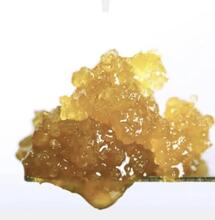Weed does not cause mental health issues, says new study

A research team from the University of Bath have investigated the association between the potency of cannabis and the probability of developing psychosis, cannabis dependence, anxiety and depression.
Previous studies have formerly linked cannabis potency and high THC levels to an advanced risk of mental health concerns, including psychosis. However, this is the first time any study has utilised multiple data references and strategies. These include self-reporting and objective calculations of cannabis potency to comprehend its effects.
The research assessed the relationship between the potency of cannabis and the subsequential mental health effects in 410 16-24-year-olds who reported using cannabis at least once a month for 12 months. Just under 50% of the participants were documented as being daily consumers.
Participants were asked to provide a 0.3g sample of the cannabis they would smoke. They were tested twice, once when inebriated and once when sober.
Samples were tested for THC concentrations, with consumers given a series of questionnaires and scales to reply to that measured potency appreciation, cannabis dependence, anxiety levels, depression and psychosis-like symptoms.
After adjusting for any confounding factors, the researchers found no association between more potent cannabis and an increased risk of dependence or psychosis-like symptoms.
While a preference towards higher potency cannabis seemed to be linked with a 'slightly increased' risk of cannabis reliance, this was not the case after adjustment was made for frequency of use.
The study also found that any evidence of an association between cannabis potency, depression and anxiety was fragile.
Researchers state, "No association was found between THC concentration in cannabis and cannabis dependence. There was weak evidence of a small association between cannabis potency and depression and anxiety. There was no association between high potency cannabis preference or THC concentration in cannabis and psychosis-like symptoms. High-potency cannabis preference and THC concentration might be associated with symptoms of depression. Still, more evidence is needed to understand this relationship."
This research is the most recent study attempting to explore further and clarify the relationship between cannabis and psychosis.
A study from earlier this year found 'no significant association' between any level of cannabis use and the onset of psychosis, persistence of symptoms or functional outcomes.
Meanwhile, research from 2021 looked at the relationship between Teenage cannabis use and adult-onset psychosis. The authors found no evidence that greater consumption of cannabis was connected to a more heightened likelihood of psychosis developing in adulthood.
More on this topic from Soft Secrets:
Medicinal Cannabis The Pros and Cons
Does Cannabis cause schizophrenia?










